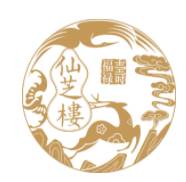
On February 22, a piece of news about “Ng Man-Tat suffering from liver cancer” rushed to the hot search on Weibo. It is reported that Ng Man-Tat was found to have liver cancer at the end of last year and cancer cells had begun to spread in his body at that time. Recently, he completed the operation and entered the chemotherapy stage. He is currently very weak.
As Stephen Chow’s golden pair, Ng Man-Tat is a household name and popular among the public. Since yesterday, many netizens have been cheering for him, hoping that Uncle Tat can overcome the illness as soon as possible.

Twenty days ago, the singer Zhao Yingjun died young from liver cancer. Now, it is the news of Ng Man-Tat suffering from liver cancer. Why are so many people suffering from liver cancer? At the same time, the sensitive topic of “liver cancer” has been in the teeth of the storm。
Why is liver cancer at an advanced stage as soon as it is discovered? How to prevent liver cancer? Let’s take a look!
Liver cancer is at an advanced stage as soon as it is discovered. There are many reasons for this:
- Unlike stomach cancer and intestinal cancer, early screening for liver cancer lacks effective and simple methods. In theory, using enhanced nuclear magnetic resonance for screening can achieve early detection. However, the cost and inconvenience of this technology are both problems, and it is difficult to promote it on a large scale. Currently, liver cancer screening methods include liver color Doppler ultrasound and alpha-fetoprotein. Alpha-fetoprotein also lacks sensitivity, and liver color Doppler ultrasound is also prone to miss diagnosis for liver cancer less than 1 cm. In addition, liver color Doppler ultrasound is greatly affected by the level of doctors. Therefore, the early screening of liver cancer is not an easy task, and most of the findings are advanced.
- The liver has an abundant blood supply. After liver cancer appears, it is prone to metastasis of small lesions. So, even if it is detected early, there is a possibility of metastasis.
3. Ignoring the physical examination is also a subjective reason. If there are risk factors for liver cancer found in the physical examination center, it is necessary to do 3-6 months of liver color Doppler ultrasound and alpha-fetoprotein screening.
Liver cancer is preventable:
1. Most liver cancers have basic risk factors, such as hepatitis B or C infection, long-term alcohol abuse, and long-term consumption of moldy food. In China, the main cause of liver cancer is hepatitis B. Without the above risk factors, the incidence of liver cancer is extremely low.
2. Therefore, it is important to remove etiological factors first. Quitting alcohol, treating hepatitis C, avoiding moldy foods and active antiviral treatment for hepatitis B are all necessary.
3.People with the above risk factors should adhere to physical examination and follow-up. Especially liver cancer has a higher incidence in patients with liver cirrhosis, who should be screened more closely, that is, having liver color Doppler ultrasound and alpha-fetoprotein screening for 3-6 months. Liver MRI should be carried out when necessary.
4. Regarding hepatitis B, the current view is as follows: If the hepatitis B virus can be quantitatively reduced below 20IU/L, the possibility of cirrhosis will be close to zero, and the possibility of liver cancer can also be reduced to the level of the normal population (in the absence of cirrhosis). [This paragraph is abstracted from the MicroBlog of “Doctor Liang for Liver Diseases”]
Prevention and treatment of hepatitis with Lingzhi (also called Ganoderma Lucidum or Reishi Mushroom)
Lingzhi exhibits an apparent effect in protecting the liver. Triterpenoids in Lingzhi are believed to be the active ingredients for protecting the liver.
Although Ganoderma lucidum has no obvious anti-hepatitis virus effect, it has immunomodulatory and hepatoprotective effects, so it can be used as hepatoprotective and immunomodulatory drugs for the treatment of viral hepatitis.

In the 1970s, China began to use Ganoderma lucidum preparations to treat viral hepatitis. According to various reports, the total effective rate was 73.1%-97.0%, and the marked effect (including the clinical cure rate) was 44.0%-76.5%. Its curative effect is manifested in the reduction or disappearance of symptoms such as fatigue, loss of appetite, abdominal distension and liver pain. Liver function tests such as alanine aminotransferase (ALT) returned to normal or decreased. The enlarged liver and spleen returned to normal or shrank to varying degrees. Generally speaking, the effect of Ganoderma lucidum on acute hepatitis is better than that on chronic or persistent hepatitis.
Clinically, the combination of Ganoderma lucidum and liver-damaging drugs can prevent or reduce liver damage caused by drugs, thereby protecting the liver.
The hepatoprotective effect of Ganoderma lucidum is also related to the “tonifying liver qi” and “invigorating spleen qi” of Ganoderma lucidum described in ancient Chinese medicine books. [The above content is excerpted from Lingzhi From Mystery to Science written by Zhi-Bin Lin in May 2008, Peking University Medical Press, p65-67]
A moment to care for the liver
Each 100g of GanoHerb Ganoderma lucidum spore oil contains 20g of Ganoderma lucidum total triterpenes, which are made from highly cell-wall broken Ganoderma lucidum spore powder through the “supercritical CO2 extraction, fractionation and purification” technology. This technology invented by GanoHerb has applied for a national invention patent [Patent No.: ZL201010203684.7] and gained 20-year national patent protection. This product can not only protect against chemical liver injury but also boost the immune system.


Pass on the Millennia Health Culture
Contribute to Wellness for All



